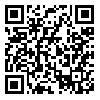2- Assistant Professor, Cardiovascular Intervention Research Center, Rajaie Cardiovascular, Medical and Research Center, Iran University of Medical Sciences, Tehran, Iran
3- Associate professor, Department of Health Education and Health Promotion, School of Public Health, Tehran University of Medical Sciences, Tehran, Iran,* Corresponding Author: Email: sadeghir@tums.ac.ir ,
4- PhD in Health Education and Health Promotion &MPH, Department of Health Education and Health Promotion, School of Public Health, Tehran University of Medical Sciences, Tehran, Iran
5- Professor, Department of Epidemiology and Biostatistics, School of Public Health, Tehran University of Medical Sciences, Tehran, Iran
Background: Considering the importance of standard precautions to prevent needle stick injuries and health care staff, this study aimed to determine the effectiveness of educational interventions to improve adherence to standard precautions, health belief model based on professional clinical staff needle stick two hospital "yaftabad" and "Ghiyasi" done.
Materials and Methods: This study was an experimental study of two group. The study population was 90 persons of professional clinical staff Shohada Hospital Yaftabad as the intervention group and 90 patients from the hospital Ghiyasi as compared to randomly selected and three part questionnaire including demographic, structures, health belief model , and practice questions were completed. In analyzing the data, descriptive and inferential statistical methods were used.
Results: At baseline, the two groups regarding demographic variables, health belief model structures and functional do not different between them. After intervention structures perceived severity, perceived susceptibility, perceived barriers, self-efficacy and performance of the experimental group showed statistically significant change (p< 0.05) that the effect of education based on health belief model.
Conclusion: education based on health belief model, you can increase the level of knowledge and capacity building and efficacy in clinical staff needs people to observe standard precautions
Received: 2016/05/23 | Accepted: 2016/08/13 | Published: 2016/11/7
| Rights and permissions | |
 |
This work is licensed under a Creative Commons Attribution-NonCommercial 4.0 International License. |


